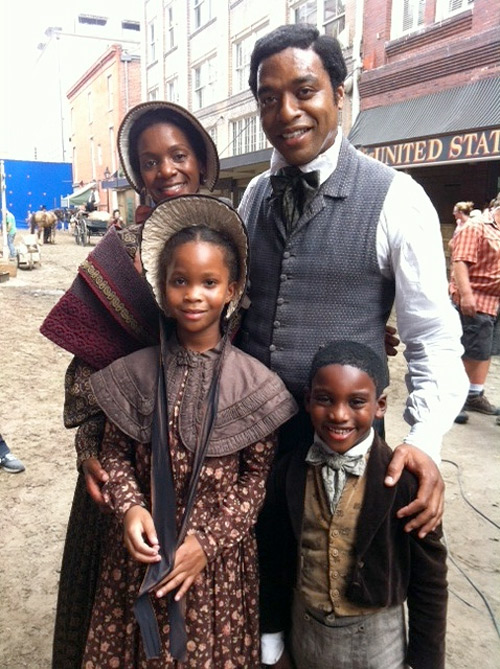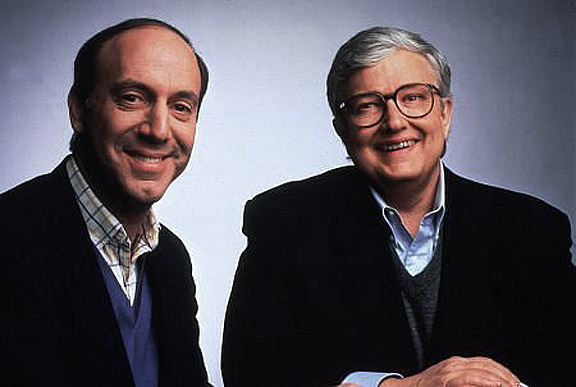The year 2013 is a very curious time for Americans. We have our first Black president serving a second term, and we recently celebrated the 50th anniversary of the March on Washington. Yet it feels as if the stakes for racial progress have never been higher. Even though the law certifies that Blacks are equal to their White counterparts, Blacks can’t quite shake the feeling of being the “Other”—of being under the omniscent White gaze, judging and measuring their worth as human beings. This unspoken scrutiny is found in the way some Black parents will tell instruct their child to “act right around White folks,” because for said child to misbehave would reflect negatively on the entire Black community.
This not-so-secret code of silence even plays out on a national media platform. From Geraldo Rivera’s comments that Trayvon Martin’s hoodie was to blame for his tragic death, to a little girl, Tiana Parker, being told that her locks were inappropriate to wear to school, the message is clear – if you’re a “respectable Negro” and play by the rules, you’re granted a certain immunity from racism and welcomed with open arms by the mainstream.
The problem with the politics of respectability is that it’s tainted with the belief to be born with brown skin you are inherently inferior and must work your way up to the goodness of Whiteness.
In his article “I Hate Myself: What Are Respectability Politics And Why Do Black People Subscribe To Them?”, Maurice Dolberry defines Black Respectability: “They are an undefined yet understood set of ideas about how Black people should live positively and how we should define Black American culture.” Dolberry traces the roots of this ideology as far back as the 19th century with the formation of the Women’s Convention – a group of Black women from various Baptist churches whose mission was to uplift and unify the African-American community. One of their missions was to go into poorer communities, handing out flyers that instructed them how to behave properly in public, proper hygeine and the importance of sexual abstinence. Unfortunately, Black Respectability politics would only target those of lesser economic means.
Even noted Black intellectuals like W.E.B. DuBois engaged in respectability politics. In his 1920 essay “The Damnation of Women,” DuBois described abolitionists Sojourner Truth and Harriet Tubman as “strong, primitive types of Negro womanhood,” and hoped for a “finer, type of black woman wherein trembles all of that delicate sense of beauty and striving for self-realization.” While DuBois appreciated both women’s contributions to the end slavery, their physical appearance and socioeconomic background did not qualify them as the right kind of “Negro” DuBois desired.

Black respectability has been a common motif in Black cinema.
In the military drama “A Soldier’s Story” a Black soldier, Captain Davenport (Howard Rollins Jr.) is sent to the deep South to investigate the murder of Master Sgt. Vernon Waters, a Black soldier (Adolf Caesar), towards the end of World War II. In a series of flashbacks, the audience learns Waters was a cruel and abusive platoon leader, targeting soldiers he felt were “coonish” and lazy.
In a heated exchange between Waters and Pfc. Peterson (Denzel Washington) Waters explains his deep-seated prejudice: “If it wasn’t for you Southern n*ggas, White folks wouldn’t think we was all fools.”
Throughout the movie, we see Waters being made fun of and disrespected by White soldiers on the base, then turning his anger and self-hate onto the Black soldiers under his command.

In the recent summer hit, “The Butler” director Lee Daniels illustrates how respectability politics can be a hindrance to gaining equal access to the American Dream. After witnessing the cold-blooded murder of his sharecropper father, Cecil Gaines (Forest Whitaker) learns from an early age that being seen and not heard is the first rule of survival as a Black man in the South.
Cecil’s talent as a butler eventually lands him a coveted spot in the White House. Cecil has a loving wife (Oprah Winfrey) and family, living a solid middle class existence, yet he’s cognizant of the unequal treatment given to the Black staff. Cecil gathers up his courage and makes his case before his supervisor, pointing out that he’s paid 40 percent less than his White counterparts, when he is told to either accept the pay inequity or walk out the door.
Visibly crushed, Cecil accepts defeat, realizing that “going along to get along” doesn’t balance the scales for racial equality.

In “12 Years A Slave” director Steve McQueen also deconstructs the fallacy of Black Respectability through Patsey (Lupita Nyong’O), a young female slave and the protagonist Solomon Northup (Chiwetel Ejiofor).
Based on the same-named autobiography by Northup, the movie gives a firsthand account of the brutality and inhumanity of U.S. slavery. Solomon is a free Black man living in upstate New York in 1841, with a beautiful wife and children, when he is asked to accompany two traveling musicians for a series of gigs in the nation’s capital. A talented violinist, Solomon agrees to go to provide for his family, and is thrown into a series of nightmarish events. Solomon is drugged by the two musicians and sold into slavery, cut off from family and friends with no hope of escape.
While being transported to Louisiana, Solomon meets two other male slaves with differing views on how to handle their dire predicament. A slave named Robert (Michael K. Williams) comes up with a plan to revolt and overthrow their captors, but another, Clemens (Chris Chalk), vehemently opposes this dangerous plan. Solomon seems unsure as to which route to take when Robert is killed in an attempt to protect Eliza (Adepero Oduye) from being sexually assaulted by one of their captors. The message comes loud and clear to Solomon: resistance is futile and deadly.
Solomon’s first owner, the Reverend William Ford, soon enlists Solomon to aid in his business, when Solomon suggests a better way of transporting lumber. Solomon seizes the opportunity in the hopes his hard work and obedience will be rewarded. Solomon is given a harsh dose of reality by fellow slave Eliza, still in the throes of grief after being separated by her young son and daughter. Eliza has no illusions about their bondage and tells him that his strategy to win Ford over is for naught: “The master don’t care.” Why would Ford let him go when he’s proven to be such a valuable asset?
When Ford cannot keep up with his debts, he is then sold to Edwin Epps (Michael Fassbender), a foul-tempered, mercurial plantation owner. There, Solomon meets Patsey, one of Epps’ most productive slaves. Epps brags that she is the best cotton picker in all of Louisiana, as she picks twice the amount of any able-bodied man. But even Patsey’s industrious nature cannot protect her from Epps’s sadistic obsession with her.
In one of the film’s most disturbing scenes, Epps creeps into the slave quarters late one night and takes Patsey to a nearby shed and forces himself upon her. Patsey lays almost lifeless, disconnecting her mind and body from Epps’ sexual assault, which only incites Epps further. Clearly Epps’ attraction to Patsey is one-sided, and her lack of interest results in cruel and unusual punishment from both Epps and his wife, Mary (Sarah Paulson). Patsey is physically abused by Mary in fits of jealousy. She is enraged by her husband’s blatant preoccupation with the slave; in one scene, Mary throws a heavy crystal decanter, leaving a nasty bruise on Patsey’s cheek.
Trapped in a sadistic power play between Epps and his wife, Patsey is defenseless, her very safety at the whim of this cruel and dysfunctional couple. When Patsey finally makes a stand against Mistress Epps, she is given the most brutal of whippings, as punishment for defying the natural order of the land in the South – slaves are not be seen as human beings, and therefore have no rights. In that moment, Patsey’s goodness and unparalleled years of service brought her no mercy at the hands of her tormentor.
Although the roots of Black respectability were well-meaning in theory, in actuality they foster a double standard for African-Americans, by selling the false premise that they live in a fair and balanced meritocracy. As demonstrated by Patsey and Solomon’s tragic narratives in “12 Years A Slave,” their “respectable” behavior could not absolve them from the cruelty of human bondage.
This is a hard lesson, taught in many a film—a lesson that resonates beyond whatever period in which the movies happen to be set. Discrimination, like the institution of slavery itself, is terrorism of mind, body and soul. You cannot negotiate with terrorists.












